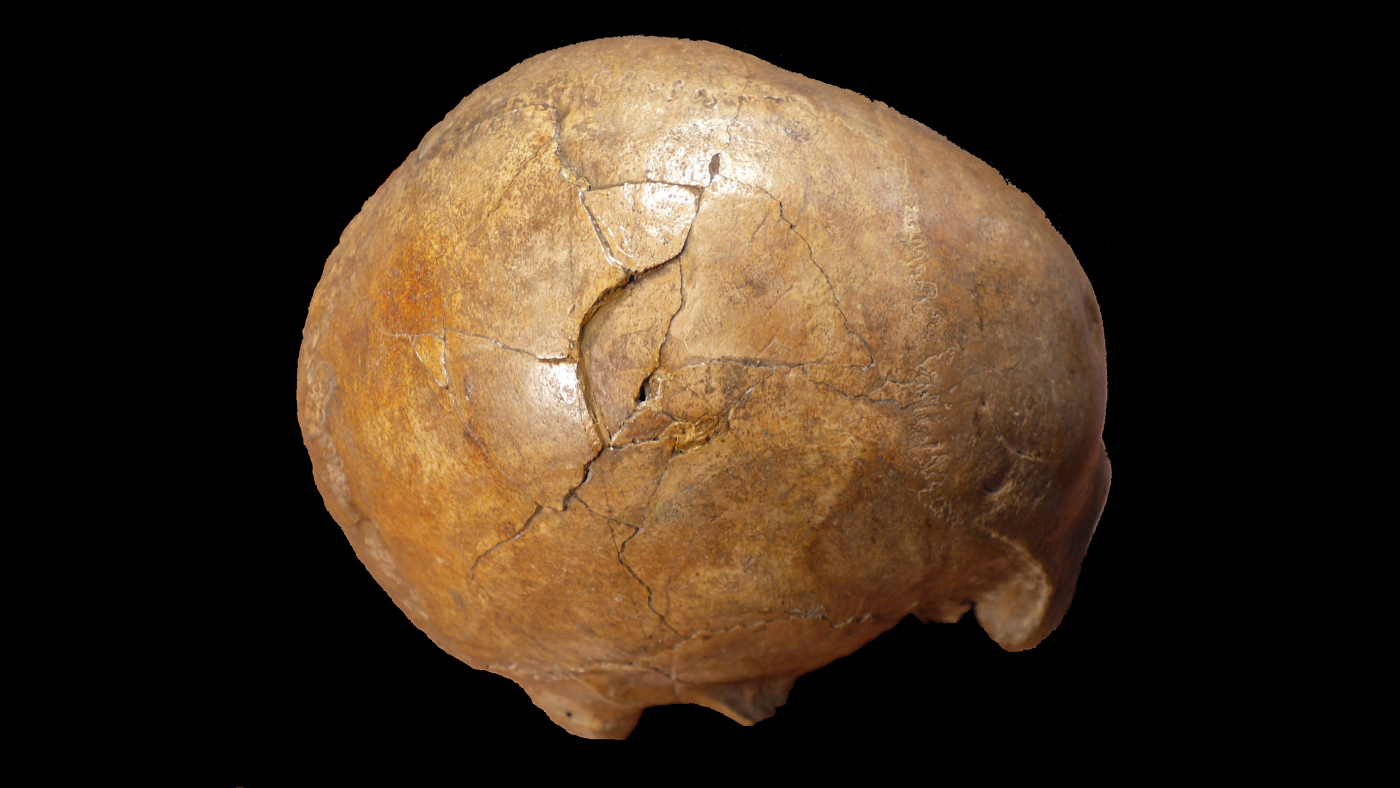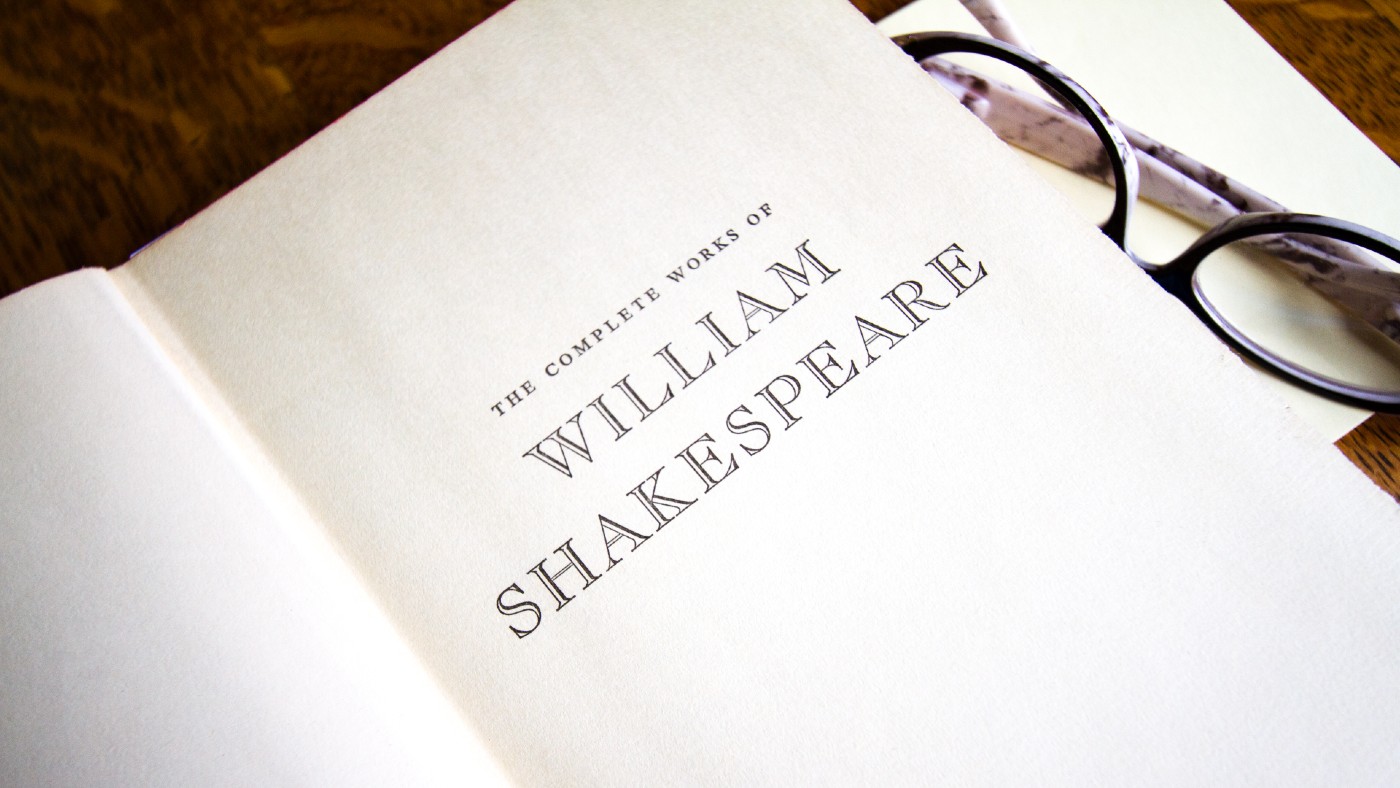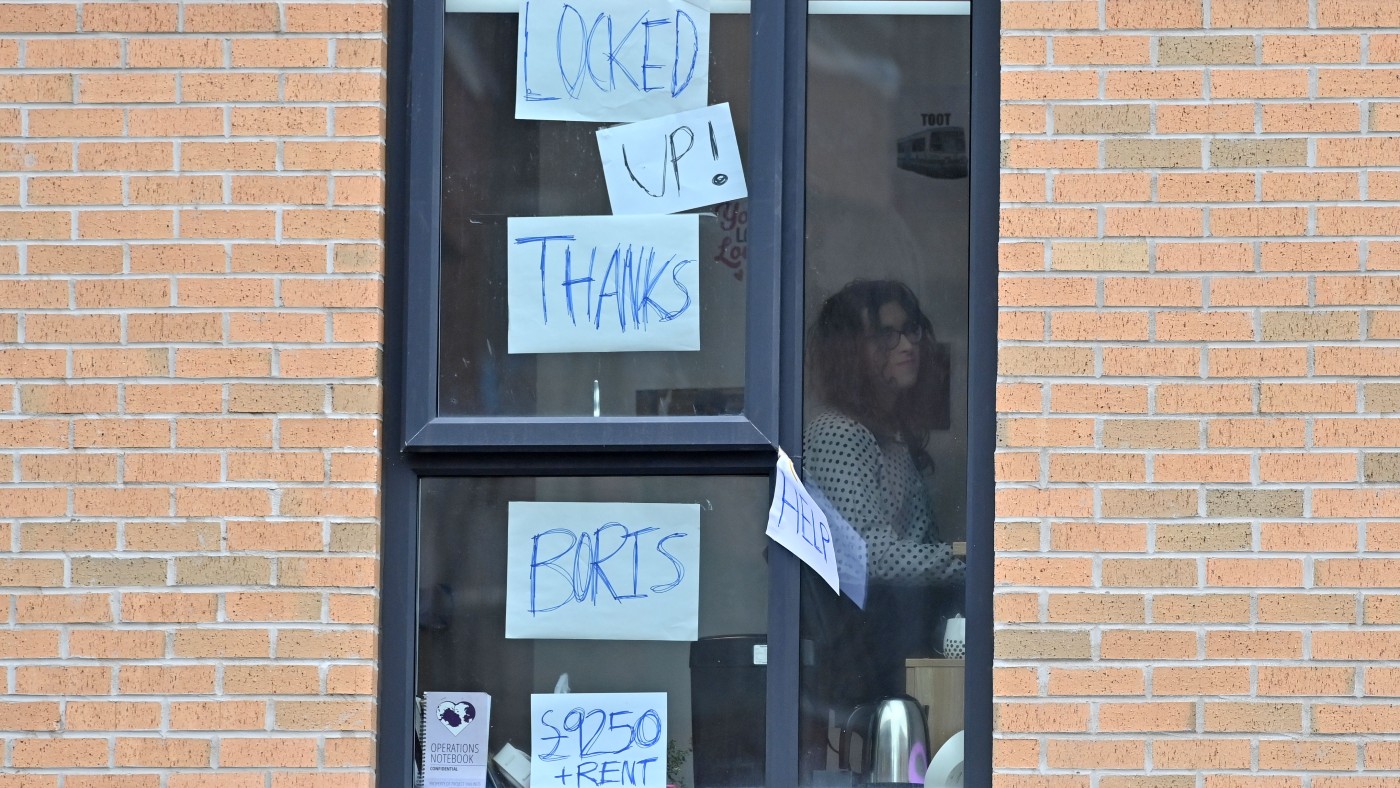Scientists solve 33,000-year-old murder mystery
The man’s brutal death sheds light on early modern human behaviour

A free daily email with the biggest news stories of the day – and the best features from TheWeek.com
You are now subscribed
Your newsletter sign-up was successful
Researchers have solved the world’s oldest cold case - the murder of a man who lived more than 33,000 years ago.
Using forensic science, the team found that the Palaeolithic-era man had died of blunt force trauma, suffering two blows to the head.
The skull, known as Cioclovina calvaria, was found in a cave in Transylvania, Romania in 1941, and is one of the oldest and best preserved skulls of an early modern human.
The Week
Escape your echo chamber. Get the facts behind the news, plus analysis from multiple perspectives.

Sign up for The Week's Free Newsletters
From our morning news briefing to a weekly Good News Newsletter, get the best of The Week delivered directly to your inbox.
From our morning news briefing to a weekly Good News Newsletter, get the best of The Week delivered directly to your inbox.
Scientists have long been mystified by the extensive fractures on the skull, and debated the cause of trauma.
An international team of researchers used CT scans to determine the head injuries had been fatal as there were no signs of healing.
Recreations using artificial skulls ruled out death from a fall, with injuries most consistent with blunt force trauma to the head from a bat-like object.
Bone fragment analysis led them to believe he had been facing his attacker when he received the fatal blow.
A free daily email with the biggest news stories of the day – and the best features from TheWeek.com
They speculated that the attacker could have been left-handed, or used both hands, owing to the injuries being on the right side of the skull.
One of the researchers, Elena Kranioti, from the University of Crete, told New Scientist that the extent and location of the cranial fractures suggest that the person died shortly after being struck.
The Upper Palaeolithic period is known for its significant technological advances and increased symbolic behaviour and cultural complexity, the authors wrote in the research paper in PLOS.
“We show that the behavioural repertoire of the earliest modern Europeans also comprised violent inter-personal interactions and murder.”
According to Newsweek, the Middle to Upper Palaeolithic period is considered the time when religion emerged. “Understanding social relationships at this time is important in understanding how societies would later emerge.”
Speaking to New Scientist, Stanley Serafin, from the University of New South Wales, Australia, said that given the timing of the death, there are questions about whether the attack was committed by someone of the same species, or whether it was caused by modern humans migrating into areas where Neanderthals may have still lived.
The skull is kept in the University of Bucharest’s laboratory of palaeontology.
-
 ‘Restaurateurs have become millionaires’
‘Restaurateurs have become millionaires’Instant Opinion Opinion, comment and editorials of the day
-
 Earth is rapidly approaching a ‘hothouse’ trajectory of warming
Earth is rapidly approaching a ‘hothouse’ trajectory of warmingThe explainer It may become impossible to fix
-
 Health insurance: Premiums soar as ACA subsidies end
Health insurance: Premiums soar as ACA subsidies endFeature 1.4 million people have dropped coverage
-
 English literature: is it doomed?
English literature: is it doomed?Speed Read Arts and humanities courses are under attack thanks to a shift to ‘skills-led’ learning
-
 Are UK classrooms a new political battleground?
Are UK classrooms a new political battleground?Speed Read Government has issued new guidance on political neutrality in schools
-
 Kathleen Stock resigns: the ‘hounding’ of an academic on the front line of transgender rights debate
Kathleen Stock resigns: the ‘hounding’ of an academic on the front line of transgender rights debateSpeed Read Sussex University students claim ‘trans and non-binary students are safer and happier for it’
-
 How 100,000 ‘lost children’ disappeared from UK school system
How 100,000 ‘lost children’ disappeared from UK school systemSpeed Read Experts warn that vulnerable pupils may be recruited by gangs after failing to return to education post-lockdown
-
 Why is the government planning to cut arts education funding by 50%?
Why is the government planning to cut arts education funding by 50%?Speed Read Proposal described by critics as ‘catastrophic’ and ‘an attack on the future of UK arts’
-
 Schools do not spread Covid-19, multiple studies find
Schools do not spread Covid-19, multiple studies findSpeed Read Reports from Germany, Norway and the WHO conclude schoolchildren are not vector of infection
-
 Universities must consider refunding students hit by Covid disruption, regulator warns
Universities must consider refunding students hit by Covid disruption, regulator warnsSpeed Read Institutions under investigation as thousands of undergraduates remain locked down amid coronavirus outbreaks
-
 Coronavirus: will UK schools have to close again?
Coronavirus: will UK schools have to close again?Speed Read Thousands of teachers are self-isolating - but the government is determined not to order new closures